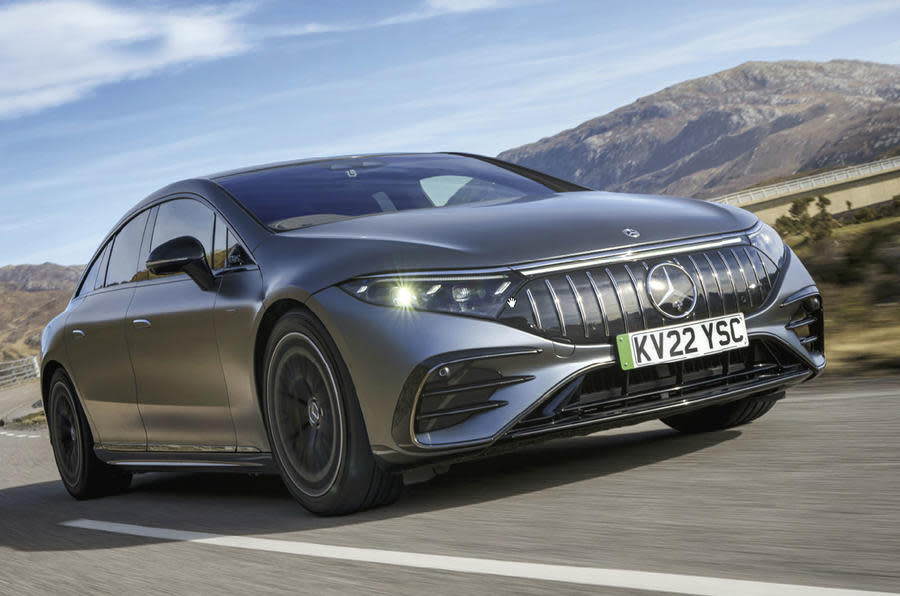Mercedes-Benz abandons range-extender EV trials

EQS test cars used a 1.0 petrol engine to charge the battery
Mercedes-Benz has pulled the plug on tests exploring range-extender drivetrains as a potential way to bolster the utility and appeal of its electric cars, Autocar understands.
The technology that had been trialled uses a specially adapted combustion engine as a generator to charge the battery when it runs low.
However, despite beginning an advanced engineering programme, the firm has decided to focus on simpler and more cost-effective battery-electric drivetrains, a source familiar with Mercedes’ car development activities confirmed.
“We have created [range-extender] prototypes based on existing models, both for packaging and road testing. In the end, though, we concluded that the range-extender drivetrain is a transitional technology with a relatively short-term benefit in terms of sales and comparatively high production costs,” said the high-level insider.
Among the range-extender Mercedes prototypes is an EQS-based mule. It is claimed to feature a front-mounted turbocharged 1.0-litre two-cylinder engine – essentially half of the turbocharged ‘M254’ 2.0-litre four-cylinder engine used through its line-up – to act purely as a generator without direct drive to the wheels.

 Yahoo Autos
Yahoo Autos 